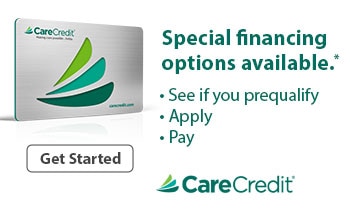Wildlife Wednesdays: How St. Charles Vets Help Rescue Local Wildlife This July

Each summer, St. Charles Veterinary Hospital sees an influx of calls about injured or orphaned wildlife. July often marks "baby season" for local species—raccoons, squirrels, opossums, and fledgling birds. As a 24/7 emergency and veterinary hospital, we take wildlife rescue and rehabilitation seriously, offering compassionate care to these wild patients year-round.
1. Why July Is Baby Season in Florida
Florida’s warm climate prompts early breeding cycles among many animals. By July, small mammals and birds are leaving nests and venturing on their own—often resulting in unforeseen injuries or sudden orphaning. Common reasons for rescue include:
- Fallen or abandoned nestlings
- Accidental dog or cat attacks
- Motor vehicle collisions
- Entanglement in fences or at feeders
As a licensed wildlife rehabilitation partner, St. Charles Veterinary Hospital's team guides residents through safe pickup and handoff to wildlife experts.
2. Our Role: Triage and Expert Care
When wildlife arrives at our doors—day or night—we immediately perform triage in our emergency department. Our veterinarians assess hydration, injury severity, and any infectious risks. We provide initial stabilization, such as fluids, wound cleaning, or pain control. Once stable, animals are transferred to certified wildlife rehabilitators.
3. How You Can Help Wildlife Safely
- Observe before intervening. Many "rescued" baby animals have parents nearby. Unless the animal is clearly injured, allow 24 hours and keep pets indoors.
- Soft transport tips. Use well-ventilated boxes with soft cloths. Never feed wildlife—wrong foods can be harmful.
- Know your contacts. Call St. Charles Vet at (863) 438‑6600 or Florida Fish and Wildlife for guidance before transporting.
4. Why Permits & Protocols Matter
Wildlife rehab requires state permits. Improper care can stress animals, transmit disease, or violate regulations. At St. Charles, our veterinary team coordinates with licensed domestic wildlife partners, ensuring every patient receives legal and expert care.
5. Behind the Scenes: A Wildlife Case Study
Just last week, a raccoon kit hit by a car was rushed in after a local family called us. Our team stabilized the baby, treated its injuries, and called a rehabilitation volunteer who continues to care for it—preparing it for release near the rescue site. We follow up to confirm successful reintroduction.
6. Supporting Wildlife Rehabilitation
You can help too—even without direct involvement:
- Donate to local licensed rehabs
- Volunteer with wildlife coalitions
- Install wildlife-friendly features like raccoon-proof trash cans, native plant gardens, and screened vents
- Foster awareness—share reliable tips on safe intervention
7. Why St. Charles Takes Wildlife Care Seriously
- 24/7 emergency access: Our hospital handles urgent wildlife cases anytime—even overnight.
- Integrated care: Our emergency, general practice, and wildlife teams collaborate every day.
- Community hub: We host info sessions, distribute rescue resources, and maintain open lines for wildlife questions.
July Action Steps for Wildlife-Friendly Pet Owners:
- Watch during baby season—don’t swoop in unless necessary.
- Keep dogs and cats supervised outdoors.
- Memorize St. Charles Vet’s wildlife rescue phone line and location.
- Share safe-intervention steps with neighbors.
St. Charles Veterinary Hospital is more than your trusted pet hospital—we’re a wildlife rescue partner and community resource, especially during critical baby season. This July, let's work together to protect Davenport’s fragile wild neighbors.
If you discover injured or orphaned wildlife—or have questions—call (863) 438-6600 anytime or visit us at 2360 North Blvd West,Davenport, FL 33837. We’re here, 24/7, to help animals great and small.


















